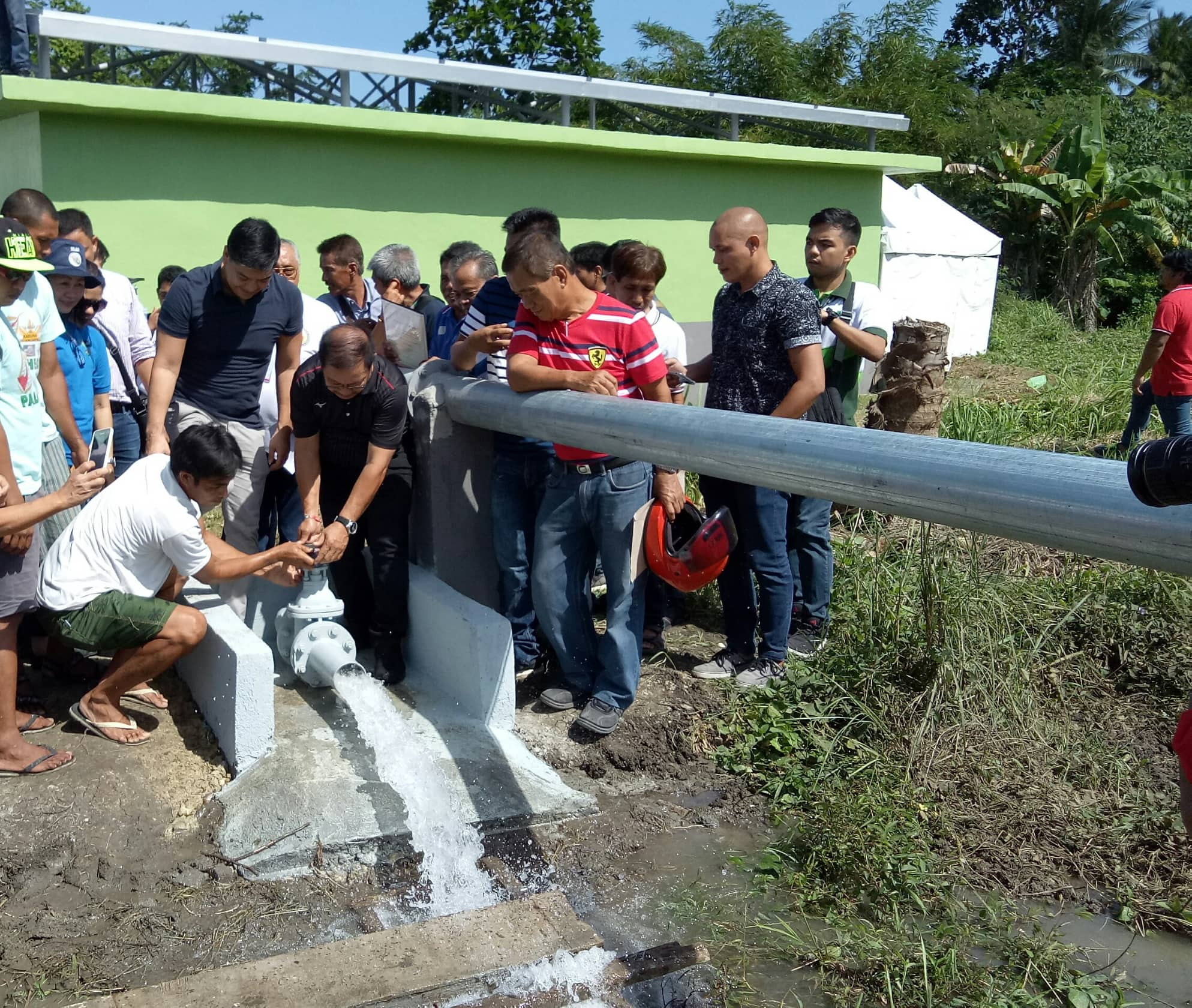
Agriculture Secretary Emmanuel Piñol led the ceremonial turn-over of the Solar Powered Irrigation System (SPIS) established at Brgy. Bagadion, Libmanan, Camarines Sur on December 19, 2018.
The Libmanan SPIS is just one of the four irrigation systems that the Department of Agriculture has set up in the province to enable farmers to increase their production.
“Our gift for Bicolano farmers this Christmas are modern farming technologies including this SPIS,” Piñol announced.
Four SPIS units have been completed for Camarines Sur. It is located in the towns of Libmanan (Barangay Bagadion), Pula (Riverside), San Fernando (Barangay Lupi) and Nabua (Macalawag). Twelve additional units are undergoing construction and are expected to be completed by the first quarter of 2019.
The solar powered water system is an innovative and practical technology conceptualized under the leadership of Piñol. It is a fast, efficient, and cost effective technology, which draws water from a nearby source (eg: river or creek) through a solar pump and collects it in a reservoir. Water is distributed via pipes laid throughout the entire planting field enabling even supply of water.
The system also allows “fertigation” or mixing fertilizer in the irrigation system making farming less labor intensive and even distribution of fertilizer.
A total of 169 units of Solar-Powered Irrigation Systems are currently under construction all across the country as part of the efforts of the government to improve rice production and fulfill consumption requirement for all Filipinos.
SPIS is expected to boost the rice production of Camarines Sur by 10% in 2019, and enable farmers to plant rice twice a year with a target yield of six metric tons per hectare per harvest.
While in Camarines Sur, the agri chief committed P100-million in funds through the Production Loan Easy Access (PLEA) program. Under PLEA, farmers and fisherfolk can borrow up to P50,000 at 6% interest per annum with no collateral. The loan can be used in purchasing the needed farm inputs to boost harvest and income.
“We must focus on improving our production rather than raising the price of our produce. Climate change renders everyone helpless. We cannot rely on importation forever, we must be able to produce food for our country’s consumption,” Piñol said. ### (Carlos Cezar Baldosa, DA-AFID)














